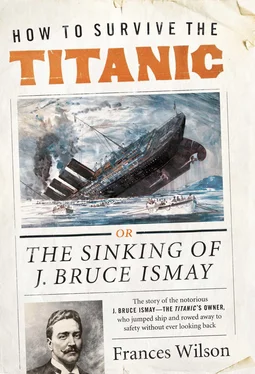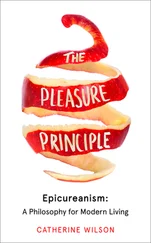At the end of chapter twenty-one, Marlow tells us that his ‘last words about Jim shall be few’, but his last words continue for another twenty-four chapters. Lord Jim is all talk: talk framed within talk; talk spinning itself away out of nothing. It is remarkable how much talk Jim’s jump manages to generate. A column called ‘Books to Cut’ in the November 1900 issue of the British journal Public Opinion concluded: ‘Words cannot describe the weary effect of all this… we long to get on and skip all this chatter, to discover into what sort of man Jim really develops.’
This is not the only occasion that Marlow talks about Jim. Throughout his life, Conrad tells us, ‘many times, in distant parts of the world, Marlow showed himself willing to remember Jim, to remember him at length, in detail and audibly. Perhaps it would be after dinner, on a verandah draped in motionless foliage and crowned with flowers, in the deep dusk speckled by fiery cigar-ends.’ When he remembers Jim, Marlow becomes ‘very still, as though his spirit had winged its way back into the lapse of time and were speaking through his lips from the past’.
It is not only Marlow who talks about Jim. In Conrad’s novel, wrote the reviewer for the Daily News, ‘no one talks unless it is to discuss Jim’. The scandal had, Marlow says, ‘an extraordinary power of defying the shortness of memories and the length of time: it seemed to live, with a sort of uncanny vitality, in the minds of men, on the tips of their tongues. I’ve had the questionable pleasure of meeting it often, years afterwards, thousands of miles away, emerging from the remotest possible talk.’ Everyone has something to say about Jim, and much of it is extraordinary. One man, a German butterfly collector called Stein, compares Jim’s psychological state to that of Hamlet, who also delays action and is then racked with existential doubt. Ja! Ja! In general, adapting the words of your great poet: That is the question… how to be! Ach! How to be.’
On this particular night, two hundred feet above sea level, so much talk is generated by the facts of Jim’s case that Conrad’s reviewers mocked the novel’s claims to realism. ‘This after-dinner story, told without a break,’ wrote Arnold Bennett in an unsigned review for Academy, in November 1900, ‘consists of about 99,000 words. Now it is unreasonable to suppose that the narrator, who chose his words with care, spoke at a greater rate than 150 words a minute, which means that he was telling the after-dinner story to his companions for eleven solid hours.’ Time is nothing to a sailor — this is the difference between shore people and sea people — and Conrad responded that ‘men have been known, both in the tropics and in the temperate zone, to sit up half the night “swapping yarns”… whereas all that part of the book which is Marlow’s narrative can be read through aloud, I should say, in less than three’. Other reviewers were baffled by the book. ‘More readable novels, better novels in every way, have already been published by the score,’ said The Sketch, but ‘none more strange, none more genuinely extraordinary. Lord Jim is an impossible book — impossible in scheme, impossible in style. It is a short character sketch, written and rewritten to infinity, dissected into shreds, masticated into tastelessness. The story — the little story it contains — is told by an outsider, a tiresome, garrulous, philosophising bore. And yet it is undeniably the work of a man of genius.’
All this writing and rewriting, this torrent of words, came out of years of solitude and silence. ’Lord Jim is a great book, a wonderful book, a magnificent book,’ wrote William Alden (also, coincidentally, the name of Senator Smith) in the New York Times Book Review on 1 December 1900. ‘Here, then, is a work of genius — of unique and superb genius… It is a phenomenon almost as strange as the author himself — the man who spent a lifetime at sea, dealing with the roughest places of life, and living wholly without books, then suddenly showing himself to be one of the most striking writers known to English Literature.’ Perhaps the best description of the book’s appeal came later from Albert Guerard, who wrote: ’Lord Jim is a novel of intellectual and moral suspense, and the mystery to be solved, or conclusion to be reached, lives not in Jim but in ourselves. Can we, faced by the ambiguities and deceptions oflife itself… apprehend the whole experience humanely? Can we come to recognise the full complexity of any simple case, and respond both sympathetically and morally to see Jim and his version of “how to be”?’ 5
Conrad, for whom English — which he learned aged twenty-one — was his third language, is never as relaxed as Marlow. This is one of the differences between the two captains. Captain Marlow is Conrad’s English orator; his cadences are commanding and clear while Conrad’s thick Polish accent weighed down a voice already heavy with gloom. Conrad was not a natural public speaker, but he was a conversationalist who knew the power of exchange. Talk for Conrad was romantic or it was nothing.
Edward Garnett, his first reader at Unwin’s, describes the writer’s conversation as ‘a romance; free and swift, it implied, in ironical flashes, that though we hailed from different planets the same tastes animated us… there was a blend of caressing, almost feminine intimacy with masculine incisiveness’. When Marlow and Jim talk it becomes a sentimental education for them both: Jim’s story is less interesting than Marlow’s interest in Jim’s story; that Marlow is fascinated by Jim makes Marlow himself fascinating, and Jim’s words are rich because Marlow makes so much of them. More than any other writer, Conrad understands the difficulties of language: the subject on which he has most to say is the horror of being able to say nothing at all, of words drying up and failing the speaker. Speech might be no more a serried circle flying around an immovable fact, but so long as it keeps on coming, there is hope of some kind of meaning. For Conrad the modernist, meaning is always carved out of language but words are also ‘the great foes of reality’, as he puts it in Under Western Eyes. ‘There comes a time when the world is but a place of many words and man appears a mere talking animal not much more wonderful than a parrot.’
When we first meet Marlow in Youth (1898), he is forty-two and drinking claret at a mahogany table with four other men who ‘share the bond of the sea’. The narrator, one of the group, tells us that this story ‘could have occurred nowhere but in England, where men and sea interpenetrate, so to speak’. Marlow — ‘(at least I think that is how he spelt his name)’ — then relates the tale of his first voyage as a young sailor twenty-two years earlier. ‘You fellows know,’ Marlow begins, ‘there are those voyages that seem ordered for the illustration of life, that might stand for a symbol of existence.’ His ship, the Judea, is an ancient masted rig transporting 600 tons of coal to Bangkok. The coal spontaneously combusts and a fire breaks out in the bunker; after burning for days the ship is finally destroyed but the crew are saved. The fate of the Judea represents the end of the age of sail: all ships will soon be powered by coal. But the story is elegiac in other ways too: Marlow’s subject is the exuberance of youth and its ‘romance of illusions’. What to an older man is a harrowing experience at sea is, to a younger man, an awakening, an adventure. The days of his youth were when Marlow was happiest, and the group around the table drink to ‘youth and the sea. Glamour and the sea! The good, strong sea, the salt, bitter sea, that could whisper to you, and roar at you and knock your breath out of you.’
Читать дальше












